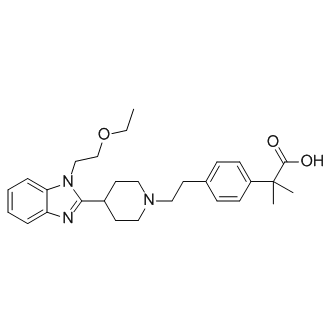Slation initiation driven solely by the cap structure or solely by the poly tail was partially responsive to miCXCR4, while only an mRNA carrying both end modifications was Gentamycin Sulfate subject to the full extent of translational repression. This situation prompted us to further investigate the involvement of the poly tail and its removal by deadenylation in miRNA-mediated translational repression. We report here that an established model of let-7-mediated repression in mammalian cells features marked deadenylation that precedes the onset of observable translational repression and mRNA destabilisation. We find that depletion of argonaute co-factors can reduce let-7mediated repression without noticeably affecting mRNA deadenylation, confirming that repression can be enacted by a deadenylation-independent mechanism. Nevertheless, we show that the magnitude of translational repression is reduced when the let-7-targeted reporter mRNA lacks a poly tail, or when we block the deadenylation of a reporter mRNA with poly tail. Our observations thus indicate that in mammalian cells deadenylation can contribute not only to mRNA decay but also translational repression mediated by an endogenous miRNA. RCK and GW182 both have reported roles in the miRNA mechanism. Our finding that RCK depletion does not prevent let-7-mediated deadenylation is consistent with previous studies in D. melanogaster cells, where depletion of RCK/Me31B, together with other decapping LOUREIRIN-B activators, led to accumulation of deadenylated miRNA-target mRNAs. Work on human and D. melanogaster GW182 proteins showed that their silencing activity could in part be attributed to mRNA deadenylation. However, GW182 proteins have repressive effects that are separable from their role in deadenylation and the situation in vertebrates is further complicated by ample opportunity for functional redundancy and specialisation among the three paralogs TNRC6A, B, and C. Our observation that let-7-mediated deadenylation was unimpeded in cells depleted of TNRC6A may thus simply  mean that we have not been able to reduce GW182 proteins below a required threshold level. With regard to the main objective of these experiments, we can nevertheless conclude that Ago cofactor depletion can cause significant relief of let-7-mediated repression despite ongoing target mRNA deadenylation, indicating that deadenylation alone is not sufficient to generate full repression.
mean that we have not been able to reduce GW182 proteins below a required threshold level. With regard to the main objective of these experiments, we can nevertheless conclude that Ago cofactor depletion can cause significant relief of let-7-mediated repression despite ongoing target mRNA deadenylation, indicating that deadenylation alone is not sufficient to generate full repression.
We show here using a reporter system in HeLa cells that let-7 triggers target mRNA deadenylation
Leave a reply